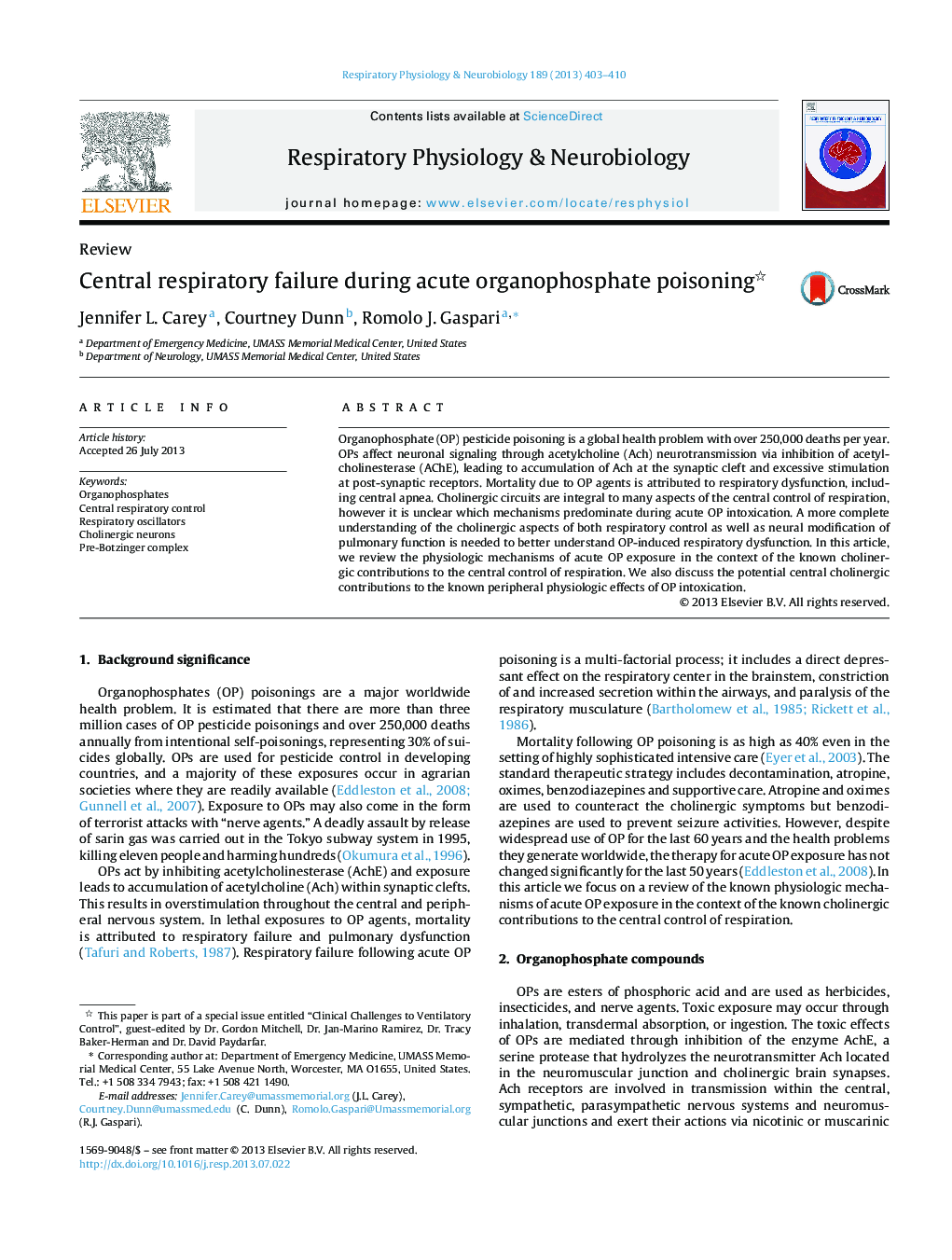| Article ID | Journal | Published Year | Pages | File Type |
|---|---|---|---|---|
| 5926022 | Respiratory Physiology & Neurobiology | 2013 | 8 Pages |
Abstract
Organophosphate (OP) pesticide poisoning is a global health problem with over 250,000 deaths per year. OPs affect neuronal signaling through acetylcholine (Ach) neurotransmission via inhibition of acetylcholinesterase (AChE), leading to accumulation of Ach at the synaptic cleft and excessive stimulation at post-synaptic receptors. Mortality due to OP agents is attributed to respiratory dysfunction, including central apnea. Cholinergic circuits are integral to many aspects of the central control of respiration, however it is unclear which mechanisms predominate during acute OP intoxication. A more complete understanding of the cholinergic aspects of both respiratory control as well as neural modification of pulmonary function is needed to better understand OP-induced respiratory dysfunction. In this article, we review the physiologic mechanisms of acute OP exposure in the context of the known cholinergic contributions to the central control of respiration. We also discuss the potential central cholinergic contributions to the known peripheral physiologic effects of OP intoxication.
Related Topics
Life Sciences
Biochemistry, Genetics and Molecular Biology
Physiology
Authors
Jennifer L. Carey, Courtney Dunn, Romolo J. Gaspari,
